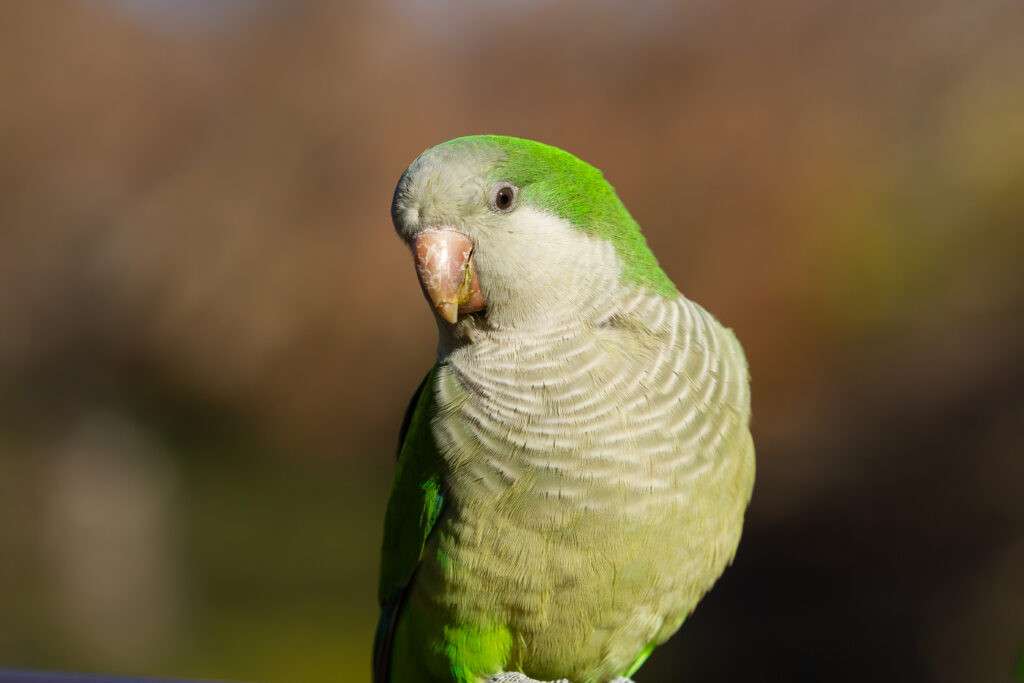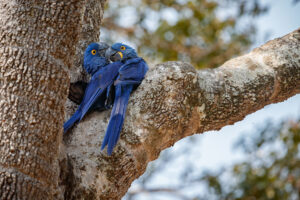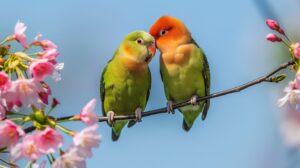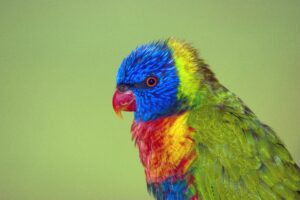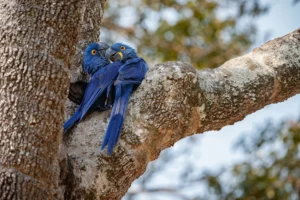Introduction
The vibrant world of pet birds has seen a remarkable surge in popularity over recent years, with the sun cheek conure standing out as one of the most captivating species to capture the hearts of bird enthusiasts across the United States. These stunning parrots, with their kaleidoscope of warm colors and engaging personalities, have become increasingly sought after as companion pets. However, beneath their charming exterior lies a complex creature that demands thoughtful consideration before bringing one into your home.
The sun cheek conure is not your average pet. While their brilliant plumage and playful antics might make them seem like the perfect addition to any household, there are several surprising aspects of these birds that many prospective owners are completely unaware of. These “shocking truths” can make the difference between a harmonious relationship with your feathered friend or years of unexpected challenges.
In this comprehensive guide, we’ll explore five essential facts about the sun cheek conure that every potential owner needs to understand before making this significant commitment. From their distinctive vocalizations to their surprising lifespan, these revelations will ensure you’re fully prepared for the reality of sun cheek conure ownership. Whether you’re actively researching to purchase a sun cheek conure or simply curious about these magnificent creatures, this article provides the critical information you need to make an informed decision.

Truth #1: The “Sun Cheek Conure” Name Confusion
Perhaps the most surprising truth for newcomers to the avian world is that the term “sun cheek conure” actually represents a common confusion between two distinct species: the Sun Conure (Aratinga solstitialis) and the Green-cheeked Conure (Pyrrhura molinae). This confusion has led many potential bird owners to search for a hybrid or specific breed that doesn’t technically exist as a single species.
The Sun Conure is predominantly bright yellow and orange with splashes of green, resembling the vibrant colors of the sun. In contrast, the Green-cheeked Conure displays primarily green plumage with distinctive maroon tail feathers and, as the name suggests, green cheeks. While both species fall under the broader category of conures, they differ significantly in size, coloration, temperament, and care requirements.
Interestingly, there are hybrid crosses between Sun Conures and Green-cheeked Conures, which some breeders might market as “sun cheek conures.” These hybrids typically display a blend of physical characteristics from both parent species. The confusion around the sun cheek conure name has created a unique search trend, with many prospective bird owners looking for information on what they believe is a specific breed but is actually either a hybrid or one of the two distinct species.
Understanding this distinction is crucial for several reasons:
- Care requirements may differ between Sun Conures and Green-cheeked Conures
- Expected lifespan, behavioral traits, and noise levels vary between the species
- The sun cheek conure price for hybrids versus purebred birds can differ significantly
- Health concerns and genetic issues may be more prevalent in hybrid birds
Before pursuing a sun cheek conure for sale, it’s essential to clarify exactly which bird you’re interested in – a true Sun Conure, a Green-cheeked Conure, or a specific hybrid between the two. This knowledge will ensure you provide appropriate care tailored to your bird’s specific needs.
Truth #2: Ear-Splitting Vocalizations That Can Shock Your Neighbors
Many new owners are unprepared for the extraordinary volume a sun cheek conure can produce. If you’re specifically interested in Sun Conures, be aware that they are among the loudest of the conure species, capable of emitting piercing screams that can reach decibel levels comparable to a smoke alarm. This natural vocalization serves these birds well in the wild, allowing them to communicate across vast rainforest territories, but in a home environment, the sun cheek conure noise level can be overwhelming.
Green-cheeked Conures, while still vocal, tend to be significantly quieter than their Sun Conure cousins. However, even Green-cheeks can produce surprisingly loud calls when excited, alarmed, or seeking attention. The sun cheek conure behavior regarding vocalization typically includes:
- Morning “wake-up” calls that begin at sunrise
- Excitement screams when spotting a family member returning home
- Contact calls throughout the day to locate their human “flock”
- Alarm calls when startled or frightened
- Social screaming during play or exercise
According to a study published in the Journal of Avian Medicine and Surgery, conures typically vocalize most actively during dawn and dusk hours, mimicking their natural behavior in the wild. This phenomenon, known as the “dawn chorus,” can be particularly challenging for owners who value quiet mornings or have noise-sensitive neighbors.
The sun cheek conure noise level has led to these birds being surrendered to rescues more frequently than many other pet species. Before bringing one of these colorful companions home, consider:
- Do you live in an apartment or shared housing where noise complaints could become an issue?
- Are there noise-sensitive family members, such as those who work night shifts or infants in the home?
- Is your schedule flexible enough to accommodate consistent interaction times to reduce attention-seeking screams?
- Are you prepared to implement training techniques to manage vocalization?
While sun cheek conure training can help moderate extreme screaming behaviors, it’s important to remember that vocalizations are a natural and necessary form of expression for these birds. Expecting a completely quiet conure is unrealistic and potentially harmful to the bird’s psychological well-being.
Truth #3: Surprising Lifespan Commitment – Decades, Not Years

One of the most shocking aspects of sun cheek conure ownership that catches many new bird parents off guard is their remarkable longevity. Unlike smaller pets that may live for just a few years, the sun cheek conure lifespan typically ranges from 20-30 years when properly cared for, with some individuals living even longer.
This extraordinary commitment means that your vibrant feathered friend could potentially be with you through multiple life transitions – from college graduation through career changes, relocations, marriage, children, and beyond. The sun cheek conure lifespan essentially represents a commitment similar to having a child, albeit one that remains perpetually at the developmental level of a toddler.
Consider these sobering statistics:
- According to the Association of Avian Veterinarians, approximately 60% of pet birds are rehomed at least once during their lifetime
- The average American moves residences every 5-7 years
- Many rental properties and homeowners’ associations have restrictions regarding pets, particularly exotic birds
- Over a 25-year period, the financial investment in a sun cheek conure (including initial purchase, food, toys, cage, and veterinary care) can exceed $25,000
The extended sun cheek conure lifespan necessitates thoughtful planning beyond just the initial excitement of bringing home a new pet. Potential owners should consider establishing a care plan that addresses:
- Financial provisions for long-term care, including specialized avian veterinary treatment
- Housing contingencies for moves or life changes
- Potential caregivers should you become unable to care for your bird
- Even provisions in your will or estate planning
The remarkable sun cheek conure lifespan represents both a beautiful opportunity for a lifelong companion and a serious responsibility that should not be undertaken lightly. These birds form intense bonds with their human caregivers and can suffer significant psychological distress when rehomed, particularly after many years with the same owner.
Truth #4: Complex Intelligence and Emotional Needs That Rival Toddlers
The sun cheek conure intelligence level often catches new owners by surprise. These birds possess cognitive abilities and emotional complexity that more closely resemble those of a young child than a typical pet. Studies on parrot cognition have demonstrated that conures can:
- Master vocabularies of 20-50 words (though the sun cheek conure talking ability varies significantly by individual)
- Solve multi-step puzzles
- Recognize themselves in mirrors (a trait once thought exclusive to humans and great apes)
- Form deep emotional attachments with specific individuals
- Experience jealousy, grief, and depression
- Understand concepts of object permanence and cause-effect relationships
This remarkable sun cheek conure intelligence means these birds require substantial mental stimulation and emotional enrichment to thrive in captivity. A bored or lonely conure can develop problematic behaviors including:
- Excessive screaming
- Feather plucking
- Self-mutilation
- Aggression
- Regression in training
- Destructive behaviors
The sun cheek conure social needs are particularly demanding. In the wild, conures live in large flocks and are rarely alone. As pets, they transfer this social requirement to their human flock and can become severely distressed when left in isolation for extended periods. The sun cheek conure personality typically includes an innate need for daily interaction and engagement with their caregivers.
Many prospective owners are drawn to the sun cheek conure pet option because of videos showing these birds performing tricks, cuddling with owners, or displaying playful antics. However, these moments represent just a fraction of the complex care these intelligent creatures require. The reality of meeting a sun cheek conure’s emotional and intellectual needs includes:
- Providing 3-4 hours of direct interaction daily
- Creating rotating enrichment activities to prevent boredom
- Maintaining consistent routines to provide security
- Learning to recognize subtle changes in behavior that may indicate emotional distress
- Potentially adding another bird companion if your schedule cannot accommodate their social requirements
The sun cheek conure intelligence level is what makes these birds such engaging companions, but it’s also what makes them particularly susceptible to emotional and behavioral problems when their complex needs aren’t fully met.
Truth #5: The Hidden Costs of Sun Cheek Conure Ownership
The initial sun cheek conure price – typically ranging from $400-$800 for a hand-raised baby – represents just a fraction of the actual financial commitment involved in properly caring for these birds. Many new owners are stunned to discover the significant ongoing expenses associated with responsible sun cheek conure care.
The proper sun cheek conure cage size alone represents a substantial investment. These active birds require spacious enclosures measuring at least 24″ x 24″ x 36″, with high-quality cages from reputable manufacturers often costing $300-$500. Additionally, the cage should be equipped with numerous perches of varying diameters and materials, food and water stations, and an assortment of toys that need regular replacement, adding hundreds more to the initial setup costs.
The sun cheek conure diet presents another significant expense that many owners underestimate. A nutritionally complete diet includes:
- High-quality pelleted food as the dietary foundation
- Fresh vegetables and fruits, properly washed and prepared daily
- Occasional nuts and seeds as treats
- Specialized supplements recommended by avian veterinarians
Beyond basic care needs, sun cheek conure owners must budget for specialized avian veterinary care. Unlike dogs and cats, birds require exotic animal specialists, and their naturally stoic nature (an evolutionary adaptation to hide illness from predators) means preventive care is essential. Annual wellness exams typically cost $100-$200, while diagnostic procedures such as blood work can add $200-$500. Emergency care for illness or injury can quickly escalate into thousands of dollars.
Here’s a breakdown of potential annual costs for proper sun cheek conure care:
| Expense Category | Approximate Annual Cost |
|---|---|
| Quality pelleted diet | $150-$250 |
| Fresh produce | $300-$500 |
| Toys and enrichment items | $200-$400 |
| Routine veterinary care | $200-$500 |
| Emergency medical fund | $500+ (recommended) |
| Specialty supplies | $100-$200 |
| Total Annual Estimate | $1,450-$2,350 |
Beyond these predictable expenses, there are hidden costs associated with sun cheek conure ownership that many people fail to anticipate, including:
- Potential property damage from chewing behaviors
- Higher utility bills from maintaining appropriate environmental temperatures
- Professional cleaning services for upholstery or carpeting damaged by droppings
- Pet sitters with avian experience who charge premium rates
- Potential moving expenses to find bird-friendly housing
The complete financial picture of sun cheek conure ownership extends far beyond the initial purchase price, representing a significant long-term financial commitment that should be carefully considered before bringing one of these colorful companions home.
Making the Right Decision: Is a Sun Cheek Conure Right for You?
After learning these five shocking truths about sun cheek conures, you might be wondering whether these vibrant birds are the right pet for your lifestyle and circumstances. While these revelations might seem discouraging, they’re intended to ensure a successful match between bird and owner rather than to dissuade appropriate candidates from experiencing the joy these birds can bring.
The ideal sun cheek conure owner possesses:
- Stability: A settled lifestyle with predictable routines that can accommodate the decades-long sun cheek conure lifespan
- Patience: The temperament to handle the learning curve associated with sun cheek conure training and behavior management
- Financial security: Resources to provide proper sun cheek conure care throughout the bird’s life, including unexpected veterinary expenses
- Time: Available hours for daily interaction to meet the sun cheek conure social needs
- Appropriate living situation: A home environment conducive to the sun cheek conure noise level and active behaviors
- Commitment to learning: Willingness to continuously educate themselves about avian health, nutrition, and enrichment
If you believe you can provide these essentials, a sun cheek conure can be an extraordinarily rewarding companion. Their affectionate nature, stunning sun cheek conure colors, and playful sun cheek conure personality create a unique bond that many bird enthusiasts find incomparable to other pet relationships.
For those who remain interested in sun cheek conure ownership after understanding these challenges, consider these steps before pursuing a sun cheek conure for sale:
- Volunteer at a bird rescue to gain hands-on experience
- Join online communities dedicated to conure ownership
- Connect with current owners who can provide realistic day-to-day insights
- Research sun cheek conure vs sun conure differences to determine which species better suits your situation
- Visit aviaries or pet stores that allow interaction with birds to assess your comfort level with their behaviors
The journey of sun cheek conure ownership can be immensely rewarding for those prepared for its realities. These intelligent, affectionate birds have the capacity to become cherished family members, bringing color, joy, and companionship to your home for decades to come.
Conclusion
The world of sun cheek conure ownership is filled with surprises that extend far beyond their stunning appearance. From the reality of substantial noise levels to the decades-long commitment of their lifespan, understanding these five shocking truths is essential for creating a successful relationship with these remarkable birds.
The sun cheek conure represents a significant responsibility that combines the emotional demands of a perpetual toddler with the longevity of a major life commitment. Their remarkable sun cheek conure intelligence, complex social needs, and specific care requirements demand owners who are prepared to adjust their lives around these needs rather than expecting the bird to conform to human preferences.
Whether you’re considering a sun cheek conure for sale, researching sun cheek conure care, or simply expanding your knowledge of these fascinating creatures, the information provided here serves as a foundation for responsible ownership. By approaching sun cheek conure companionship with realistic expectations and proper preparation, you can create an enriching relationship that benefits both you and your feathered friend for many years to come.
Remember that a well-cared-for sun cheek conure can bring incomparable joy, affection, and entertainment to the right household. Their capacity for bonding, playfulness, and even limited sun cheek conure talking abilities creates a uniquely interactive pet experience unlike any other. For those willing and able to meet their extensive needs, these vibrant birds offer a colorful companionship that’s truly extraordinary.
References and Additional Resources
- Avian Medicine and Surgery Journal (2023). “Vocalization Patterns in Neotropical Parrots.” Volume 35, Issue 2.
- Harrison, G.J. & Lightfoot, T.L. (2022). Clinical Avian Medicine. Spix Publishing.
- American Federation of Aviculture. “Conure Care Guidelines.”
- World Parrot Trust. “Nutritional Requirements for Captive Psittacines.”
- Journal of Comparative Psychology (2023). “Cognitive Abilities in Psittacine Species.”


